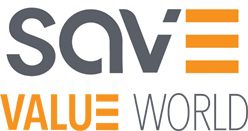By Ahmed Maged Ali, CVS, CCMP, PMP, PBA – Africa/Middle East Regional Director, SAVE International
Value Methodology (VM) has emerged as a critical tool for driving operational excellence and cost optimization within the Saudi Arabian market. As an experienced Certified Value Specialist (CVS) in the Saudi Arabian market, I have witnessed the development of VM in Saudi Arabia and its significant impact on many institutions over the last decade. Key institutions like ARAMCO, the Royal Commission in Jubail and Yanbu (RCJY), and the National Water Company (NWC) have greatly benefited from VM, fostering a deeper understanding of VM practices. This article focuses on the journey in implementing VM, showcasing its impact on operations and maintenance projects within Saudi Arabia.
In 2023, one of the key institutions in Saudi Arabia saved up to 70 million SAR by applying VM to operations and maintenance contracts. As a Value Engineering (VE) Consultant, I would like to share the outcomes of implementing VM on operations and maintenance contracts in Saudi Arabia.
Cost Savings
The cornerstone of VM implementation within most Saudi Arabian institutes lies in its capability to discern and eliminate inefficient practices, thereby yielding substantial cost savings in addition to improving functional value. Through rigorous scrutiny of processes and optimization of resource allocations, Saudi Arabia has achieved notable financial advantages, fostering enhanced resource utilization and strategic investments in critical developmental sectors across the Saudi Arabian market. This involves the meticulous elimination of unnecessary resources throughout the contract duration and the extraction of insights from both the owner’s and contractor’s viewpoints on existing contract issues, facilitating advantageous outcomes in subsequent contracts.
Enhanced Operational Efficiency
The adoption of VM has revolutionized operational efficiency across operations and maintenance contracts. Through detailed process analyses and targeted improvements, Saudi Arabia has streamlined workflows, mitigated bottlenecks, and fostered smoother operations. This enhanced efficiency has translated into improved project delivery timelines and heightened productivity, effectively meeting stakeholder expectations in the unique Saudi Arabian business landscape. As a result, performance has increased, interruptions have decreased, and the lifespan of buildings has been extended, ultimately achieving a stable operating environment.
Quality Improvement Initiatives
A key outcome of VM implementation within Saudi Arabia is the notable enhancement in the quality of deliverables. By prioritizing value-added activities and eliminating non-value-added processes, organizations within Saudi Arabia consistently exceeded stakeholder expectations, positioning itself as a reliable and trusted partner within the Saudi Arabian market.
Stakeholder Satisfaction and Relationship Building
VM-driven improvements have not only enhanced operational efficiency and quality but have also bolstered stakeholder satisfaction. By delivering projects with heightened efficiency, cost-effectiveness, and quality, Saudi Arabian institutes have cultivated stronger relationships with existing stakeholders and attracted new clients and projects, fueling further growth and success within the Saudi Arabian business environment.
Knowledge Sharing and Capacity Building
VM implementation has fostered a culture of continuous improvement and innovation within Saudi Arabian organizations. By engaging employees at all levels in the VM process, these organizations have created a conducive environment for knowledge sharing and capacity building within the unique Saudi Arabian context. This inclusive approach has empowered employees to contribute their insights and ideas, driving further enhancements and fostering a sense of ownership within the organization.
In conclusion, the implementation of the VM within Saudi Arabia’s operations and maintenance contracts has yielded significant benefits, including cost savings, enhanced operational efficiency, improved quality, stakeholder satisfaction, and knowledge sharing. This technical analysis underscores the importance of VM as a strategic tool for driving operational excellence and cost optimization within the unique business landscape of Saudi Arabia, positioning these organizations as one of the pioneers of VM implementation in the region. As organizations in Saudi Arabia continue to leverage VM and new technologies, it remains poised to deliver greater value to stakeholders and the Saudi Arabian community.
